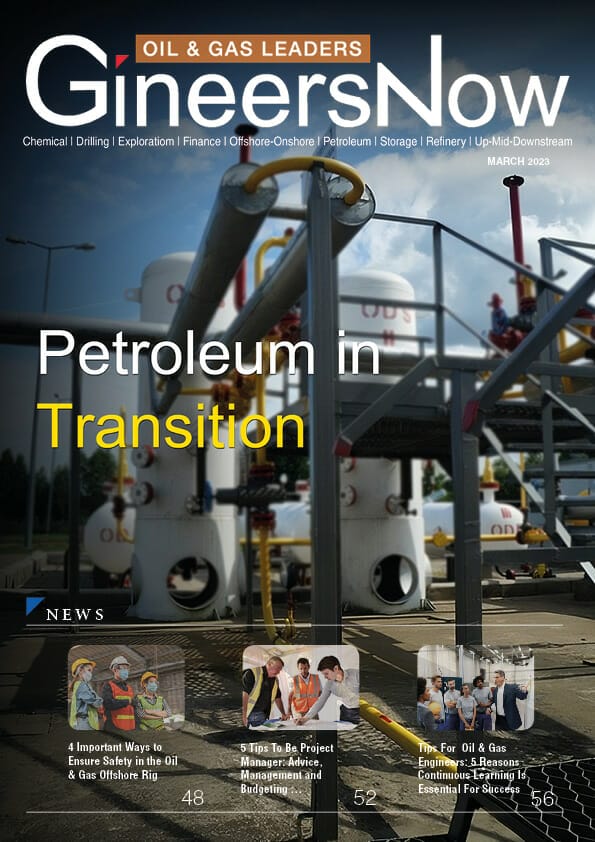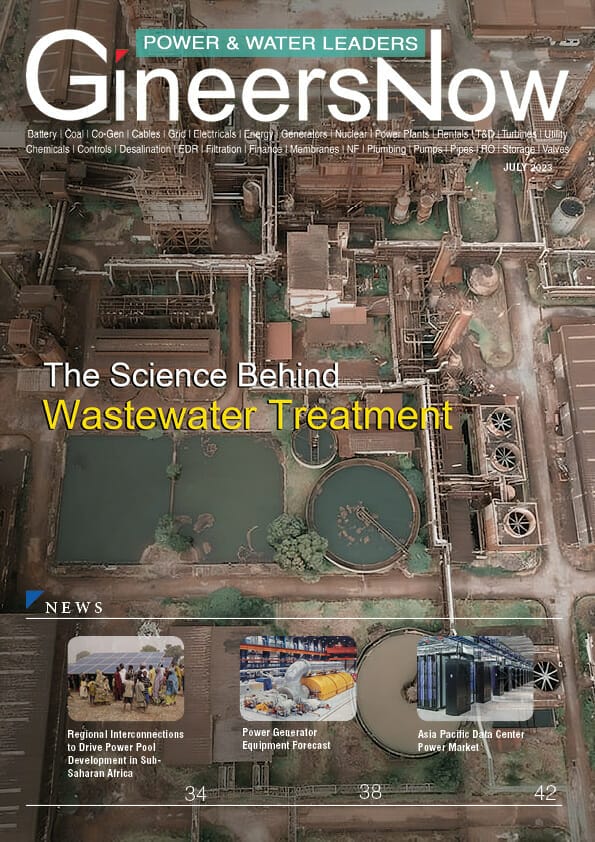The oil and gas industry has long been a major player in the global economy, but times are changing. The demand for petroleum is decreasing as more sustainable and renewable energy sources become available. With this shift, what’s next for the oil & gas industry? This article will explore how the industry is adapting to meet the changing demands within the marketplace. From new technologies to alternative sources of revenue, the future of petroleum may look very different from its past.
Petroleum in Transition
The oil and gas industry is in a period of transition. With global demand for petroleum products continuing to rise, supply from traditional sources is becoming increasingly difficult to maintain. The industry is turning to more sustainable solutions, such as renewable energy, to meet this growing demand. These strategies are transforming the oil and gas services market, creating opportunities for new players, and reshaping the business landscape.
The shift away from traditional fossil fuels has been accelerated by increasing environmental awareness among consumers, governments, and corporations. Companies are investing heavily in research and developing clean energy alternatives such as wind and solar energy. This has led to a surge in investment dollars pouring into renewable energy projects worldwide. As these investments continue to grow, their impact on the oil and gas industry will be profound.
Current Challenges: Oil & Gas Industry
The oil and gas industry is facing numerous challenges in the current global economy. From the effects of a changing climate to technological advances, companies must continually adjust their strategies to remain competitive and profitable. Demand for energy has increased drastically over recent years, with rising populations and expanding economies requiring more resources than ever before. As companies strive to meet this demand, they must also face new obstacles created by environmental regulations, technological disruption, and geopolitical instability.
Climate change has had a major impact on the industry as environmental regulations become stricter each year. Companies must invest heavily in renewable technologies such as solar power or wind turbines to reduce their carbon footprints while continuing to produce traditional fuels like oil and natural gas. The shift towards more sustainable sources of energy does not come without cost. However, these investments are expensive and often involve significant changes in infrastructure that can be difficult for some businesses to make.
Renewable Energy Sources
Renewable energy sources are becoming increasingly important as the need to reduce reliance on petroleum continues to grow. With the advancement of technology, it is becoming easier to access and utilize renewable resources such as solar, wind, and hydropower. As a result, petroleum is transitioning from being the primary energy source to being a secondary one.
The shift away from petroleum has already begun in some areas. In most parts of Europe, for instance, renewable energy now accounts for nearly 40% of all electricity production, while in other parts of the world, it may be even higher. Government initiatives and support for new forms of clean energy technology have encouraged this transition away from traditional fuels. This can range from providing incentives for businesses that invest in renewable power sources to encouraging individuals to install solar panels on their roofs or wind turbines at their homes.
Cost of Transitioning to Renewables
The transition to renewable energy sources has become an increasingly important issue in today’s world. The cost of transitioning away from petroleum-based products and into renewables can be a daunting prospect for many countries, but it is essential to ensure our planet remains habitable for future generations.
Petroleum-based energy has been the primary power source for much of the last century, but with increasing environmental regulations and public support for green initiatives, the need to transition to renewable alternatives has never been greater. Moving away from petroleum completely will require significant investment in research and development as well as infrastructure changes that could come with a hefty price tag. However, the costs associated with this transition are not only monetary; they also include social challenges like creating jobs in new industries or reforming existing ones, so they are able to use more sustainable practices.
Impact of Climate Change
Climate change has profoundly impacted the global economy and societies, with the petroleum industry being one of its primary targets. The shift to renewable energy sources has been one of the main focuses in transitioning from petroleum-based energy production to a more sustainable form. In addition, investments in green technologies have increased exponentially in recent years.
As emissions continue to rise and temperatures become increasingly unbearable, it is clear that countries must take extreme measures to reduce their carbon footprint and move away from traditional methods of powering their economies. For example, businesses are beginning to switch away from oil products such as gasoline and diesel fuel and significantly reducing their reliance on fossil fuels for electricity generation. This transition is necessary if we want to make substantial progress against climate change soon.
Technological Solutions
As the world transitions to a greener future, technological solutions are becoming increasingly popular for reducing the environmental impact of petroleum. With the constant rise in global temperatures, petroleum is an especially pertinent issue that needs to be addressed. Companies and organizations around the world are beginning to invest heavily in technological advancements that could help with transitioning away from this finite natural resource.
Innovative technology is being developed at an unprecedented rate, from more efficient extraction and refining methods to applications like renewable energy sources such as solar panels and wind turbines. This technology can help reduce carbon emissions associated with petroleum consumption and provide reliable, clean energy alternatives for households and businesses. In addition, new research is exploring ways to create biodegradable plastic made from algae or bacteria, which could make a huge difference in pollutant levels if implemented on a large scale.
Policy Changes: Supporting Sustainable Energy
As the world moves towards more sustainable energy sources, policy changes are essential for supporting and promoting the transition away from petroleum. According to the International Energy Agency, 2019 marked a historical moment in energy consumption as renewables surpassed coal for electricity generation. As this shift continues to gain momentum, it is clear that policy changes can facilitate a smooth transition away from traditional fossil fuels.
The use of petroleum has led to numerous environmental and health issues throughout history, necessitating an urgent shift towards renewable energy sources such as solar and wind power. Governments have already begun enacting policies that incentivize investments in renewable energy while discouraging the use of fossil fuels. This includes tax credits, subsidies, and other financial incentives like grants or low-interest loans. Additionally, governments should consider implementing regulations that place restrictions on CO2 emissions or creating awareness-raising campaigns around sustainable practices.
Read GineersNow Oil & Gas Magazine for FREE
Editor’s Note: Petroleum in Transition
The oil and gas industry is in a state of flux. The demand for petroleum products is growing, but the need to transition to more environmentally-friendly sources of energy has become increasingly urgent. This article investigates the steps the oil and gas industry is taking to prepare for this inevitable shift and what the future holds for one of the world’s most important industries. With new technologies, renewable resources, and government policies all coming into play, it’s clear that change is on the horizon.
The oil and gas industry has been a major global force since the 19th century. As technology, climate change, and economic trends have shifted, petroleum in transition is becoming an increasingly important topic of debate.
Leaders from across the public and private sectors must now grapple with how best to guide the energy sector through this period of evolution. To do that, they must consider numerous factors, such as market drivers, technological advancements, environmental regulations, and social demands that are reshaping the industry’s landscape.
This critical moment will require thoughtful leadership from governments and corporations alike to create an equitable platform for transitioning away from traditional fossil fuels toward renewable energy sources. With careful consideration for all stakeholders involved, oil and gas have a chance to flourish in a sustainable future.
The oil and gas industry is at a pivotal point of transition. Energy sources are changing, markets are volatile, and public opinion is shifting. As a result, the industry must adapt to remain competitive in the years to come. Companies must focus on transitioning to cleaner energy sources, digitalizing operations, and engaging with stakeholders for their businesses to remain profitable.

Final Thoughts Petroleum in Transition: What’s Next the Oil & Gas Industry?
In conclusion, the future of the petroleum and gas industry lies in its willingness to embrace the transition to renewable energy sources. Firms must be willing to innovate and take risks while addressing environmental concerns and understanding public opinion. The market will need to evolve to remain competitive and sustainable into the foreseeable future. Governments also have a role to play in incentivizing companies to invest in renewable energy technologies. Ultimately, transitioning away from fossil fuels is necessary for both the environment and the stability of oil and gas firms.










